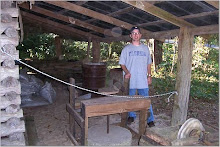In this final blog for our Public History class we had to read three articles that were about the pros and cons of digital collections. Two of the articles were written by Daniel Cohen and one was written by Joshua Brown. The articles all dealt with this new and innovative form of archiving. The articles pointed out how digital archiving is becoming the norm for all archiving. In the Cohen and Brown articles the authors discussed how a digital archiving provides a variety of ways for people to use the web in order to contribute with others on collections while browsing the web and conducting research. The web is one of the fastest ways to gain information on almost any topic and this is the main reason many historians have started placing their collections in digital formatting. The authors also discussed how digital archiving is a relatively new way to archive material that holds a lot of potential.
The first article I read was Daniel J. Cohen’s article entitled “History and the Second Decade of the Web”. In this article he explains how the web has become one the great resources when it comes to the field of archiving. He does go on however to state that the web has also complicated matters when it comes to the preservation and recording of history. This class for example is a form of digital archiving. The use of these blogs throughout the entire semester we as graduate students have communicated back and forth sharing our ideas about the reading while reading each other’s response. It has been a fun process and one that I had never truly though of as being a form of archiving until these last articles. The web has several site people can visit where information can be found quickly and easily. The web is also a place where many of the sources can easily accessed by anyone who desires them or is willing to pay for them. What I like most about this article is that it talks up the benefits of the web but also talks about the disadvantage digital archiving can cause. It is true that history has benefited from the use of the web, but internet is an open system that anyone can use. I though about the website Wikipedia when reading this article and how people change information on the site that is not always correct. People use the web to access historical records and to discuss historical information and it is unfortunate that people abuse this wonderful resource. According to Cohen, only a few ever take advantages of all the web has to offer, this is something I do not totally agree with I feel that many more abuse it and use it in the wrong way.
In “The Future of Preserving the Past,” Cohen talks about digital collections and gives both the good and bad sides of this form of archiving. He tells something that I was thing while reading this article and that is how digital media become obsolete relatively fast and many times ends up failing. Where as paper documents are not completely destroyed is they get a worn or torn, digital media can be wiped out with a small starch or electrical failure. Digital Media does however offer something paper does not and that is it contains an enormous amount of storage space, while only taking up a small amount of physical space. Digital Media collections can take in anything and everything where as other archives can not because they simply do not have the space.
Finally I can to the Brown article this article basically stated that digital media has a few challenges it needs to over come in order for historians to fully accept it as a serious form of archiving. Brown state that when the web is used properly it becomes an effective teaching tool because it engages historian from all around the world into collaboration because Brown stated that historical images on the internet help to promote active inquiry among historians. All the articles were very good and I understand why both sides of archiving need to be discussed I do not feel that we need to go fully into digital archiving but everything that can be digitized needs to be digitized.
The Final Frontier?
17 years ago

No comments:
Post a Comment